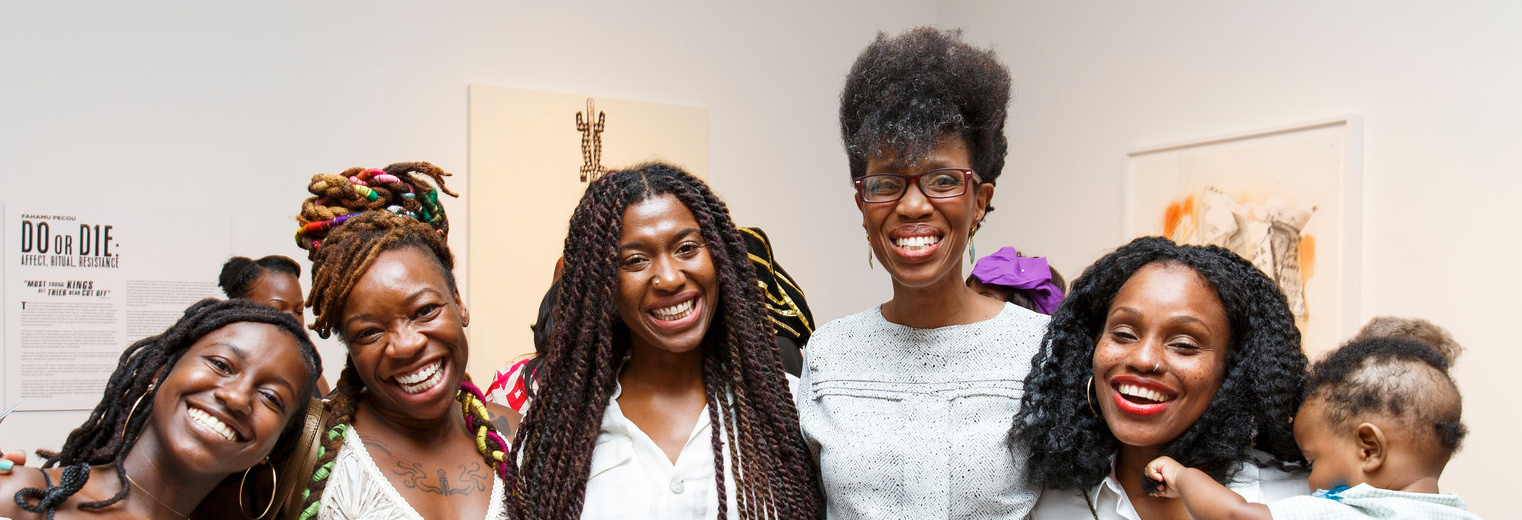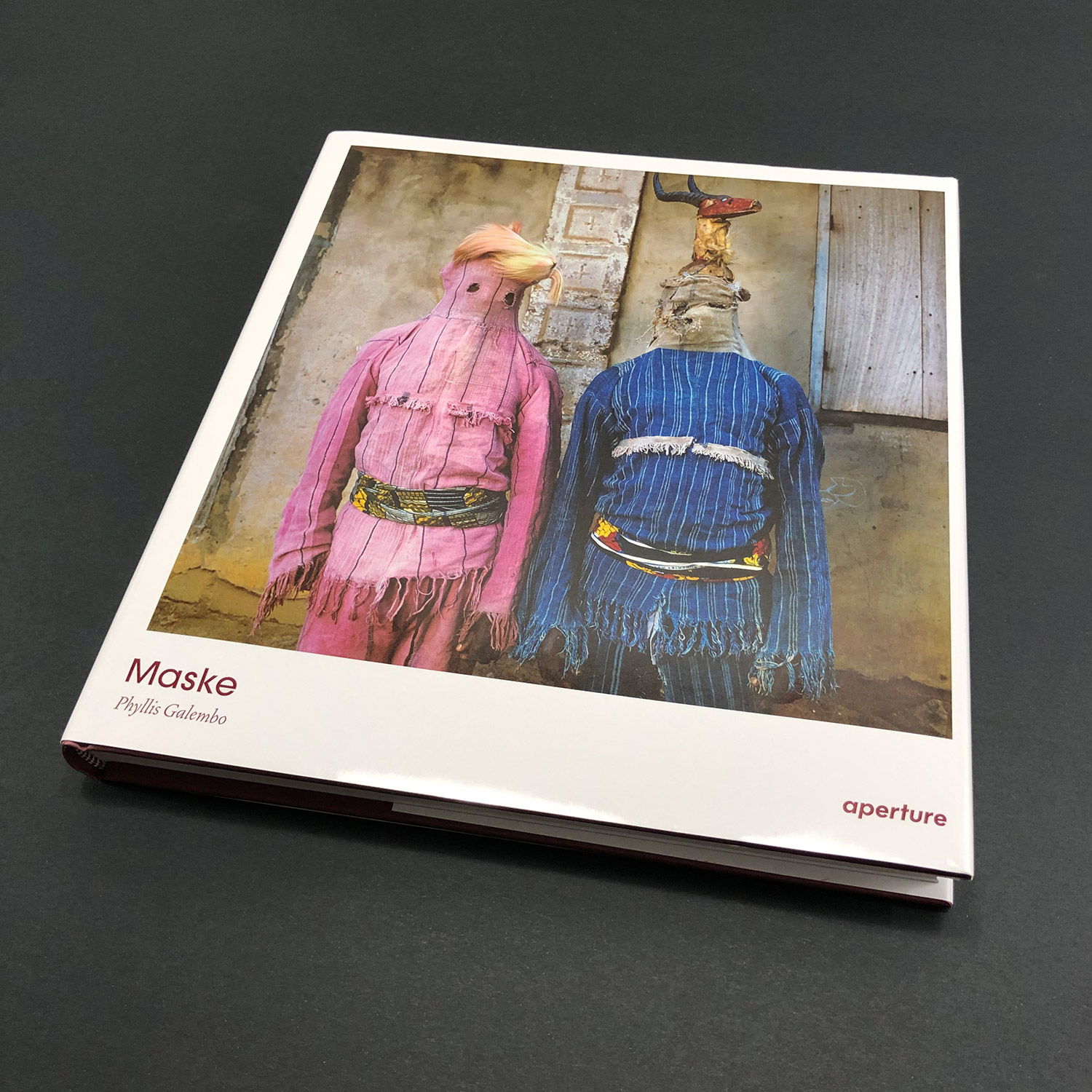


The Halsey Institute’s reference library, Biblioteca, has a wide range of titles related to wide range of subjects within the art, curiosities, and visual culture realms. For each exhibition we ask our interns to pull books from the selves that relate, in their eyes, to the themes, subject, and medium of the exhibitions on view. In this blog post, our fall 2021 intern Sallye shares why she chose Maske by photographer and past Halsey Institute artist Phyllis Galembo as a related book for the Namsa Leuba: Crossed Looks exhibition. Our Biblioteca catalog is searchable online so you can also find titles that you feel relate to the artworks in the galleries.
Here in the Biblioteca at the Halsey Institute we have several books selected for our visitors to enjoy and further indulge themselves in the themes brought to light in Namsa Leuba’s Crossed Looks exhibition. One of these books selected is Phyllis Galembo’s Maske.

In Phyllis Galembo’s Maske, themes of African diaspora are also discussed. The subjects of her works are people participating in western and central African masquerade events. These masquerade events are traditional African ceremonies, costume parties, and carnivals. Maske is introduced by Chika Okeke-Agulu, an art historian and curator and a pass participant of a masquerade event in Nigeria during his childhood. Through the use of portraiture of her subjects in these great costumes, she captures expressing themselves. It is the wearers belief that these costumes change them from their normal daily self to the exotic ancestral, metaphysical beings. The book also features essays from experts of Vodou to allow readers to have a deeper understanding and connection to the rituals and the people of this photo series.

When I learned about Phyllis Galembo’s Maske, all I could think of was Namsa Leuba’s Kingdom of Mountains and Khoisan series, where she photographed her models in their normal clothes with some added pieces such as masks, headwear, and capes to change the western perspective of West African culture. In a lot of her works she is also working with her interest in African Cosmogony, meaning that humans are the union of spirit and physical being in a physical realm. The themes of costuming and religion are a large part of Phyllis Galembo’s works.

In Namsa’s Ya Kala Ben series, she “sought to touch the untouchable” by seeking to have Guinean ceremonial statuettes to be made. She them dressed her models to make them become these sacred statuettes. These statuettes hold significant meaning in the cosmology of Guineans and they are considered the roots of the living, beings from another world. Namsa’s use of these sacred statuettes have brought her both violent and amazed reactions from Guineans.
By Sallye, fall 2021 intern
Images
Top: Cover of Phyllis Galembo, Maske, Chris Boot, 2010, 280 pages, ISBN 1905712170, 9781905712175; Phyllis Galembo, Ngar Ball Traditional Masquerade Dance, Cross River, Nigeria, 2004; Phyllis Galembo, Otoghe-Toghe Masquerade, Aromgba Village, Nigeria, 2005; Phyllis Galembo, Affianwan Masquerade, Calabar South, Nigeria, 2005
Middle: Namsa Leuba, Chunara I, 2014, archival pigment print on Dibond, from the Khoisan series ; Namsa Leuba, Umnatanenkosi, 2014, archival pigment print on Dibond, from the Kingdom of Mountains series
Bottom: Namsa Leuba, Statuette Vili, Fanta, Guinea, 2011, archival pigment print, from the Ya Kala Ben series; Namsa Leuba, Statuette Punu, Bintou, Guinea, 2011, archival pigment print, from the Ya Kala Ben series; Namsa Leuba, Statuette Kafigeledio Prince, Guinea, 2011, archival pigment print, from the Ya Kala Ben series